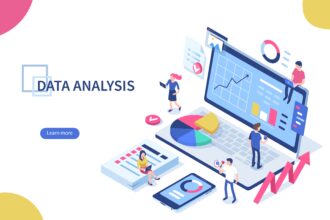Big data has been all over the news ever since businesses learnt its value in analyzing the competition, market research and optimizing their internal operations for maximum efficiency. A lot of industries adopted a data-backed decision-making process following the trend. While data indeed has great benefits in the business world and should be utilized where possible, there are certain dos and don’ts. We have seen a rising trend of using big data in the entertainment industry to create movies, TV series and music that are based on data gathered from successful ones. Although this could very well lead to more successful productions, it might not be the best way forward for the entertainment industry, at least from the perspective of audience. There are enough reasons to believe that big data could spell the death of creativity and lead to repetition if used in the wrong way.
Big data should stay in the business world
While pretty much everything is a business nowadays, there are industries that shouldn’t completely go business-minded, some examples are education, healthcare and of course entertainment. These industries influence people at a deeper level than the rest. Although improving the business efficiency using data is the way to go, tampering with the creativity behind works of art is definitely not welcome. Using data to spin up stories could lead to a situation where writers no more think of creating new plots, storylines and ways to tell the story. Data could soon become an obstacle for those working in the creative fields to come up with ground-breaking and out of the box ideas and content.
The success of house of cards
House of cards was a hit TV series debuted on Netflix on February 1, 2013. It went popular within no time and even bagged a 9 out of 10 rating from critics and reviewers. The success was not unexpected by the producers of the show though.
Netflix has been collecting data from its viewers for a long time now. This data was used to determine what the audience would find interesting and was actively used in the creation of the series. Although some might like to call this ‘creative direction’, it’s actually not very different from tracing an already finished painting. The result might be another successful television show, but it comes with the cost of missing something that could have been totally different, unique and maybe even more successful.
The question remains, if the entertainment producers start giving us exactly what we like, how will we be exposed to new, different and meaningful content that we would never imagine we might be interested in? Art and creativity might not survive in an era where data and algorithms decide what we must read, watch or listen to. And most importantly, how many house of cards clones would we want to watch?
The music is listening to you
Gone are the days when you listened to music that was created by artists who could churn out hits just because they were talented. Music creators are keenly extracting user preference data to use in the production of the next big hit. Every song you listen to is listening back to you, tracking your actions like increasing the volume, pausing, rewinding and skipping to name a few. This data is then used to predict the kind of music you like, and to create more of that kind. This is in fact killing the diversity in music. The rise of music streaming services like Spotify and Pandora has made it easy to harvest user data for analyses. The popular music recognition app Shazam has made it easier to identify songs that people want to know about, along with their geo-location. This data being directly from the users means a lot to the music producers.
Musician Alex Da Kid used IBM Watson and Beat to analyze Billboard songs for a period of 5 years to identify different musical elements that could guarantee piece of music that’s destined to be a hit. Not surprisingly, Alex Da Kid’s single ‘Not Easy’ went on to become a huge hit.
Data is actively used for music suggestions in all the popular music streaming services. For example, Pandora uses trained musical analysts to run their “Music Genome Project” where they listen and dissect songs using close to 450 characteristics. This is used to assign an identity to every song they process and helps in providing suggestions to the users.
However, ‘data-created music’ is the logical extension of data-driven music. Instead of waiting for the next great artist to pop up, music producers are engineering them from scratch. This is a terrible idea that can ruin music as an art-form. It may not be long before music is all about algorithms and computer-generated beats.
The scientific aspect of data and creativity
There are quite a few stark differences between data and creativity. Data is linear while creativity is non-linear. Creativity involves parallel processing of huge quantities of information without any predefined rules. For example, human beings use multiple methods of memory while interacting with each other and it’s very much non-linear. Creative ideation happens when there are minimal to no rules that govern the information processing in our brains. This starts to suffer when we have to deal with data and analysis.
When data and analysis becomes the blueprint for our thinking process, we think within a box from where there is no escape. Besides, being task focused can be directly conflicting to the creative process, it triggers worrying as you get swamped by the big data in hand. It puts us in a path so narrow, that it alters the way we think. Being focused on data alone minimizes the number of possibilities and heavily impacts the outcome. In fact, it can hurt creativity and bring out results that follow a certain pattern.
Art should be spared from technology and data
The beauty of art is in its imperfection, impulsive and abstract way of coming up with new ideas. Using big data to identify a magic recipe of success will only lead to the degradation of art forms by repetition and over optimization. Big data should be used in organizations to improve their efficiency but let’s hope art and other creative domains will be left alone for good.







